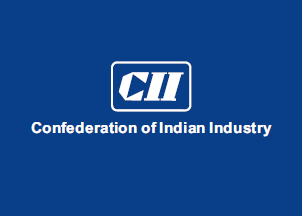Centre should review progress under CII's SC/ST affirmative action plan: DICCI

- Country:
- India
Progress under the affirmative action plan of the Chamber of Indian Industry for people from SC/ST communities was slow and results not too good, and the Centre should review it and take a call on whether there was need for reservations in the private sector, Milind Kamble, founder-chairman of the Dalit Indian Chamber of Commerce and Industry (DICCI) said Saturday. Kamble, who was this week appointed chairperson of the Board of Governors of Indian Institute of Management Jammu, was here to attend the national executive council meeting of DICCI held at Entrepreneurship Development Institute of India (EDII).
"Frankly speaking, though I am a member of the CII (Chamber of Indian Industry) National Council and co-chair of the CII's Affirmative Action Task Force, this (affirmative action) is not happening at the speed that it should have," he said. "A lot of things like buyer-seller meets and vendor development meets are happening. Traction has increased, but results have not been that good," Kamble told reporters.
Kamble said the Union government should review the progress made under the "affirmative action commitment" of the industry and take a call on whether there is a need to provide reservation for members of the SC/ST community in the private sector. "(In 2006), the Indian industry had requested the government to not impose legislation on us, (saying it) will own the responsibility and will bring affirmative action. This should be reviewed, and after review, government will have to take a call (on reservation in private sector)," he said.
The Indian industry had, in 2006, promised to work on the formula of "Four Es"- Employment, Employability, Education and Entrepreneurship among Dalit and tribal youth, said Kamble. He said the government has done much more than the Indian industry to accommodate the bottom of the pyramid in social and financial inclusion.
He said, in 2015, the NDA government had made it mandatory for public sector units (PSUs) to procure 20 per cent materials, out of 20 per cent to be procured from SMEs, from firms belonging to those from the SC/ST communities, a policy that was introduced as a voluntary one by the UPA government in 2012. Financial support schemes like MUDRA Yojana, Stand-Up India, venture capital fund, tribal entrepreneurs fund, credit enhancement guarantee schemes have benefited entrepreneurs from the Dalit and tribal communities, he said.
Procurement by central ministries, departments and PSUs from MSMEs owned by SC/ST entrepreneurs had grown manifold and stood at Rs 812 crore for financial year 2019-20, he said. DICCI has formed a district-level credit committee to review the government's MUDRA Yojana to ensure 23 per cent beneficiaries are from the SC/ST community, he said. Kamble said DICCI plans to have coordinators across 500 districts by 2020, from over 300 districts currently. The DICCI currently has a network of more than 10,000 entrepreneurs all over India.
(With inputs from agencies.)
- READ MORE ON:
- Milind Kamble
- Dalit Indian Chamber of Commerce and Industry
- communities
- community
- Chamber of Indian Industry
- people
- SC/ST
- Centre
- government
- Board of Governors
- cochair
- vendor development meets
- members
- Entrepreneurship Development Institute of India
- entrepreneurs
- Indian Institute of Management Jammu
- Chamber of Indian Industry) National Council
- buyerseller
- youth
- Affirmative Action Task Force
ALSO READ
Afghan women turn to entrepreneurship but struggle to access capital
Women should be empowered in tech and entrepreneurship: BRICS CCI Report
UNDP report reveals Struggle and Resilience of Women Entrepreneurs in Afghanistan
NMIMS School of Pravin Dalal School of Entrepreneurship & Family Business Management Hosts Grand Convocation Ceremony to Honour New-Age Entrepreneurs
Singapore: India-focused collaborations anticipated from Entrepreneurs Organization conference










